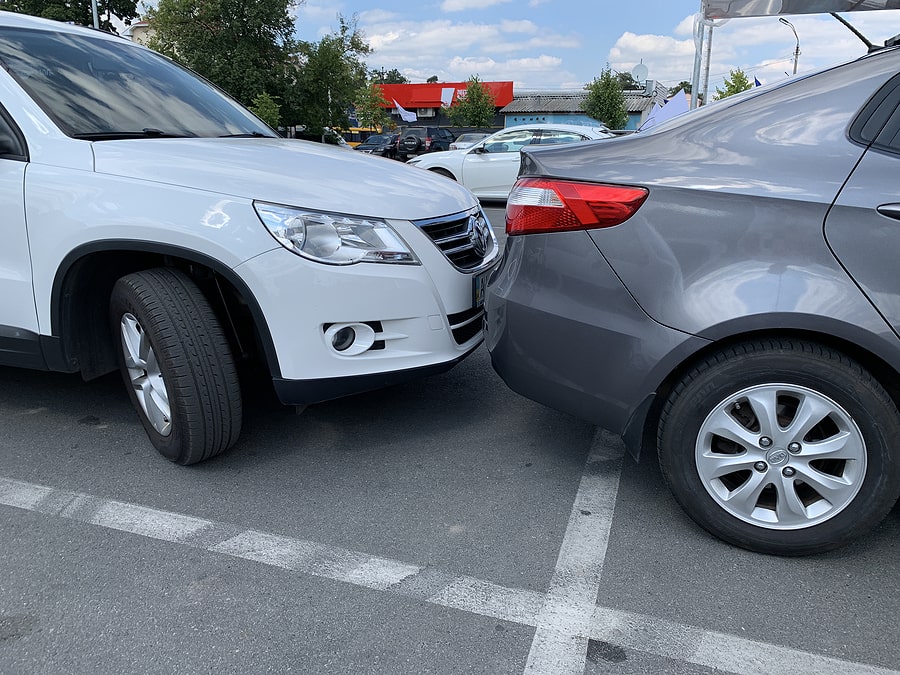Car accidents happen every day all over the United States. In fact, according to the National Highway Traffic Safety Administration (NHTSA), there were more than 2.1 million police-reported injury-causing accidents in the United States in one recent year.
Despite being so common, for most of us, a serious, injury-causing accident is a new experience. In addition, car crashes can leave victims disoriented, upset, and unsure about what to do next. It’s vital to understand that after an accident happens, the insurance company for the at-fault driver starts doing everything it possibly can to pay out as little as possible—or avoid paying out altogether. For this reason, it is CRITICAL that victims take steps to protect their legal rights and ensure that they get the compensation they deserve under the law.
If Necessary, Seek Immediate Medical Attention
After an accident, the first thing you should do is determine whether you need immediate medical attention. If you do, accept treatment from emergency medical personnel at the scene and go to the hospital, if you have any medical concerns at all. There are always ways to obtain information about your accident after the fact, including eyewitness statements, police reports, surveillance footage, and more. Failing to seek medical attention for an injury that requires it could result in significant harm, so it’s always better to rather be safe than sorry when it comes to car accident injuries.
Not only can failing to seek immediate medical attention jeopardize your health, it could also provide the insurance company with an opportunity to argue that any injuries you are claiming are fake or not as serious as you say they are. The way this argument goes is that if you were really injured, you would have gone straight to the hospital and the fact that you didn’t is proof that you are not really hurt. The worst part about this type of argument is that the insurance company knows full well that car accident victims are often in shock and full of adrenaline and often can’t tell just how seriously they’re hurt.
In spite of this knowledge, insurance companies regularly try and deny claims made by people who are seriously injured just because they didn’t seek medical attention right away. For this reason, if there is any question as to whether your injuries require immediate medical attention, you should go directly to the nearest hospital.
If You Can Stay at the Scene, Gather Information
In the event that you DO stay at the scene of the accident, collect as much information about the accident as you possibly can. Make sure to get the names of the drivers involved as well as information about the auto insurance and the vehicle they were driving, such as the make and model of the vehicle and their license plate number. If any commercial vehicles were involved, make sure to take note of any markings that indicate the company responsible for their operation.
In the aftermath of a serious car accident, your smartphone’s camera is your best friend. Do not hesitate to take pictures of the aftermath of the accident, your injuries, the damage to your vehicle, the place where the crash took place, or anything you see that you think may be out of the ordinary. For example, if you see damage on one of the vehicles that you believe existed BEFORE the accident, take a picture of it. In some cases, damaged vehicles should not be on the road at all, and it’s possible that previous vehicle damage was part of the reason your accident occurred at all.
Ask any eyewitnesses to your accident for contact information. In the event that your case becomes contested, eyewitness testimony about the way in which an accident took place can often help prove who was at fault. In addition, make note of any surveillance cameras that you believe may have captured your accident taking place. Look both for cameras mounted on traffic lights and those on any buildings that may be in the vicinity. If you see any, keep in mind that footage is often deleted on a regular basis, so it’s important that you contact a law firm immediately so that he or she can get started on taking steps to secure the footage before it’s no longer available.
See Your Doctor and Request a Thorough Medical Evaluation
Once the initial shock of the accident is over, the scene is cleaned up, and you are cleared to go home by emergency medical personnel or hospital staff, you should call your doctor (or a doctor, if you don’t have one) and ask for a thorough medical evaluation. You should do this even if you think that your injuries aren’t that serious or are going to heal on their own,
Why? Remember, the insurance company is going to do EVERYTHING it can to pay you as LITTLE AS POSSIBLE. Just like with people who do not go to the hospital after an accident, the insurance company can argue that the fact that you didn’t go to the doctor is evidence that your injuries are not as serious as you are claiming. In addition, if you do not have official documentation about your injuries, it’s much harder to prove their seriousness and that the accident caused them.
In fact, the longer that you wait to see the doctor, the harder it can be to collect compensation for your car accident injuries. In some cases, the insurance company may argue that some event in-between your accident and your claim was the actual cause of your injuries and may try and deny your claim completely.
For this reason, see a doctor as soon as you can after your accident and be as descriptive as possible about your injuries. For example, if your elbow is a bit sore after your accident and you think it’s bruised or your neck is stiff, TELL YOUR DOCTOR. The more detail that goes into your medical record about your injuries, the better. When it comes time to make a claim, this type of documentation can make getting the compensation you deserve much easier.
Stay off of Social Media
These days, many of us share important life events (and not so important life events, like what we ate for breakfast) on social media platforms like Facebook, Twitter, and Instagram. While a car accident and its aftermath may seem like something that is undoubtedly share-worthy, it’s important to keep in mind that social media posts can hurt your car accident claim and may even result in the insurance company denying your claim completely?
How? Remember, the insurance company will do ANYTHING to reduce the amount pays you. That’s their business model. They happily collect premiums from their customers every single month, but when it comes time to pay, they do everything they can to avoid it. This includes trolling your social media posts for anything they could possibly use as evidence that you were at fault for your accident or are faking your injuries. For example, if you posted something about how you had recently sent a text or that your windshield was dirty before your accident, the insurance company could try and use that as evidence that you were partially at fault for the accident that injured you.
Likewise, if you posted pictures of yourself out with friends, trying to get some exercise, or doing ANYTHING AT ALL that made you look happy in the least bit, they may try and use those posts as evidence that you are not really injured and are faking.
And don’t make the mistake of thinking that just because your profile is set to Private that you are safe from their prying eyes. Remember who you are dealing with. Insurance companies have ways to get into your private profile to monitor your posts, and there have even been reports of insurance companies making fake profiles to connect with or friend accident victims so that they can keep an eye on what they are posting.
As a general rule, stay off of social media after a car accident while your claim is pending. That said, if you have posted anything, do not delete it, as you could face accusations of attempting to destroy evidence, which could get you in serious trouble. If you have any questions about your social media use after an accident, call our experienced car accident law firm as soon as you can.
Do Not Give the Insurance Company a Recorded Statement
Many insurance companies pressure accident victims to provide a recorded statement. They often tell victims that a statement will help them “process” a claim or that they won’t be able to pay out if they do not provide one. None of this is true. The only reason that the insurance company wants victims to provide a written statement is in hopes that they will say something that can justify reducing their settlement offer.
Remember: The Insurance Company Is NOT on Your Side
As a car accident victim going through the claims process, perhaps the most important thing to remember is that the insurance company is not on your side and does not want to pay you anything. As a result, you should take a skeptical view of anything they want or say to you – no matter how nice the person on the other end of the phone seems. Insurance adjusters may even get bonuses for paying out as little as possible, so you can be sure that they are not looking out for your best interests. Some of the tricks that insurance companies use to minimize the amount they pay out include:
- As discussed above, pressuring accident victims to provide a recorded statement
- Requesting overly broad authorizations to dig through victims’ medical records, hoping to find ANYTHING they can use to characterize their injuries as “pre-existing conditions”
- Waiting for medical bills to start piling up before making a settlement offer, knowing that victims will be under financial pressure to accept a lower offer
- Making an unreasonably low settlement offer in the first few days following an accident, hoping to get to victims before they have had a chance to speak with an attorney and before they have realized the full extent of their economic and non-economic losses
These are just some of the ways that shady car insurance companies may try and trick you into taking a settlement less than your case is worth or saying something that could justify denying your claim. To understand just how unscrupulous they can be, consider this: if an adjuster starts a conversation with you with “How are you doing today?” and you reply “fine,” the insurance company may try and use your response as evidence that you are not really that hurt.
Retain Our Experienced Law Firm as Soon as You Possibly Can
Finally, the single best way you can protect your legal rights after an accident is to retain an experienced car accident law firm as soon as you can. Your legal team will thoroughly evaluate your case and determine from whom you may be able to recover. In addition, your law firm will take the time to figure just how much your case is worth, taking into account your medical expenses, the damage to your vehicle, your lost income, and non-economic damages like your pain and suffering and lost quality of life.
Best of all, when you’ve retained a law firm, your legal team will handle all communications with the insurance company on your behalf, ensuring that you don’t get tricked into saying something that could hurt your claim and letting you focus on the most important thing—your physical and emotional recovery.





